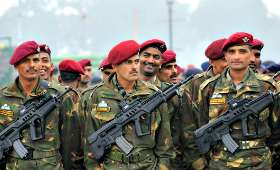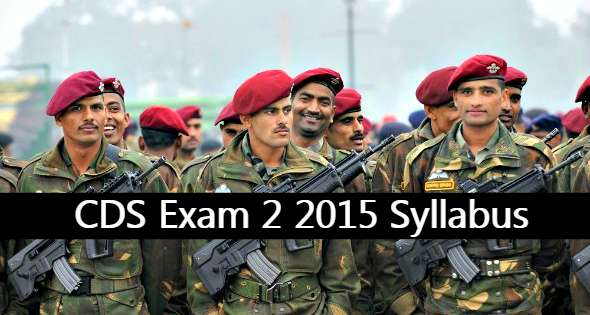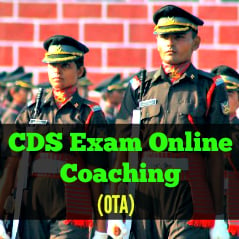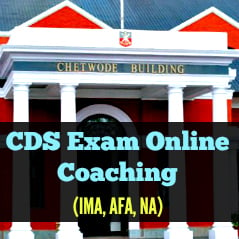Combined Defence Services Exam is an exam conducted by UPSC twice every year. It is a written exam and candidates who clear this exam are called for a personality test called the Service Selection Board. Given below is the syllabus for this exam. There are three papers in this exam English, General Knowledge and Mathematics.
English: There is no specific course for English. The paper is intended to check the basic understanding of the candidate of English Language. The paper consists of unseen passages, synonyms, antonyms, sentence corrections, ordering of sentences and catching the grammatical errors.
GK: General Knowledge comprises of the toughest part of CDSE or any UPSC exam for that matter. In GK candidates are asked about the recent happenings (of around a period of one to one and a half year). Questions are asked from Polity, Geography, History, Science, Economy etc. You need to have a good understanding of the basics. You can refer to good books dedicated to CDS exam and to the mock and previous years papers to get a rough idea of GK and types of questions.
Mathematics:
Arithmetic
- Number System-Natural numbers, Integers, Rational and Real numbers. Fundamental operations addition, subtraction, multiplication, division, Square roots, Decimal fractions.
- Unitary method-time and distance, time and work, percentages, applications to simple and compound interest, profit and loss, ratio and proportion, variation.
- Elementary Number Theory-Division algorithm. Prime and composite numbers. Tests of divisibility by 2,3,4,5,9 and 11. Multiples and factors. Factorization Theorem. H.C.F. and L.C.M. Euclidean algorithm, Logarithms to base 10, laws of logarithms, use of logarithmic tables.
Algebra
- Basic Operations, simple factors, Remainder Theorem, H.C.F., L.C.M. Theory of polynomials, solutions of quadratic equations, relation between its roots and coefficients (Only real roots to be considered ).
- Simultaneous linear equations in two unknowns-analytical and graphical solutions. Simultaneous linear in-equations in two variables and their solutions. Practical problems leading to two simultaneous linear equations or in-equations in two variables or quadratic equations in one variable & their solutions.
- Set language and set notation, rational expressions and conditional identities, Laws of indices.
Trigonometry
Sine x, cosine x, Tangent x when 0° ≤ x ≤ 90° Values of sin x, cos x and tan x, for x = 0°, 30°, 45°, 60° and 90°. Simple trigonometric identities. Use of trigonometric tables. Simple cases of heights and distances.
Geometry
- Lines and angles, Plane and plane figures, Theorems on
- Properties of angles at a point,
- Parallel lines,
- Sides and angles of a triangle,
- Congruency of triangles,
- Similar triangles,
- Concurrence of medians and altitudes,
- Properties of angles, sides and diagonals of a parallelogram, rectangle and square,
- Circles and its properties including tangents and normals,
- Loci.
Mensuration: Areas of squares, rectangles, parallelograms, triangle and circle. Areas of figures which can be split up into these figures (Field Book), Surface area and volume of cuboids, lateral surface and volume of right circular cones and cylinders, surface area and volume of spheres.
Statistics: Collection and tabulation of statistical data, Graphical representation frequency polygons, histograms, bar charts, pie charts etc. Measures of central tendency.










